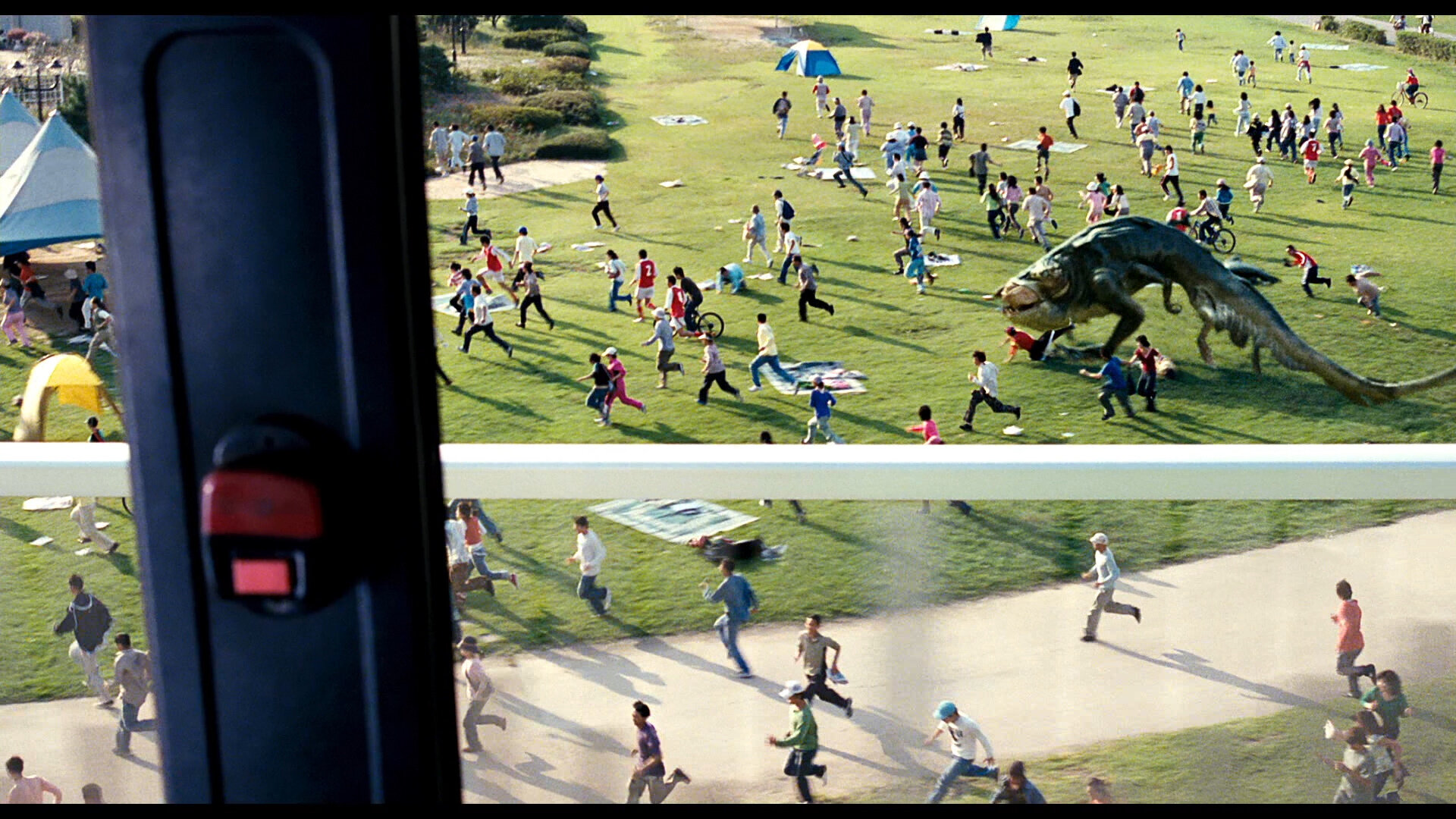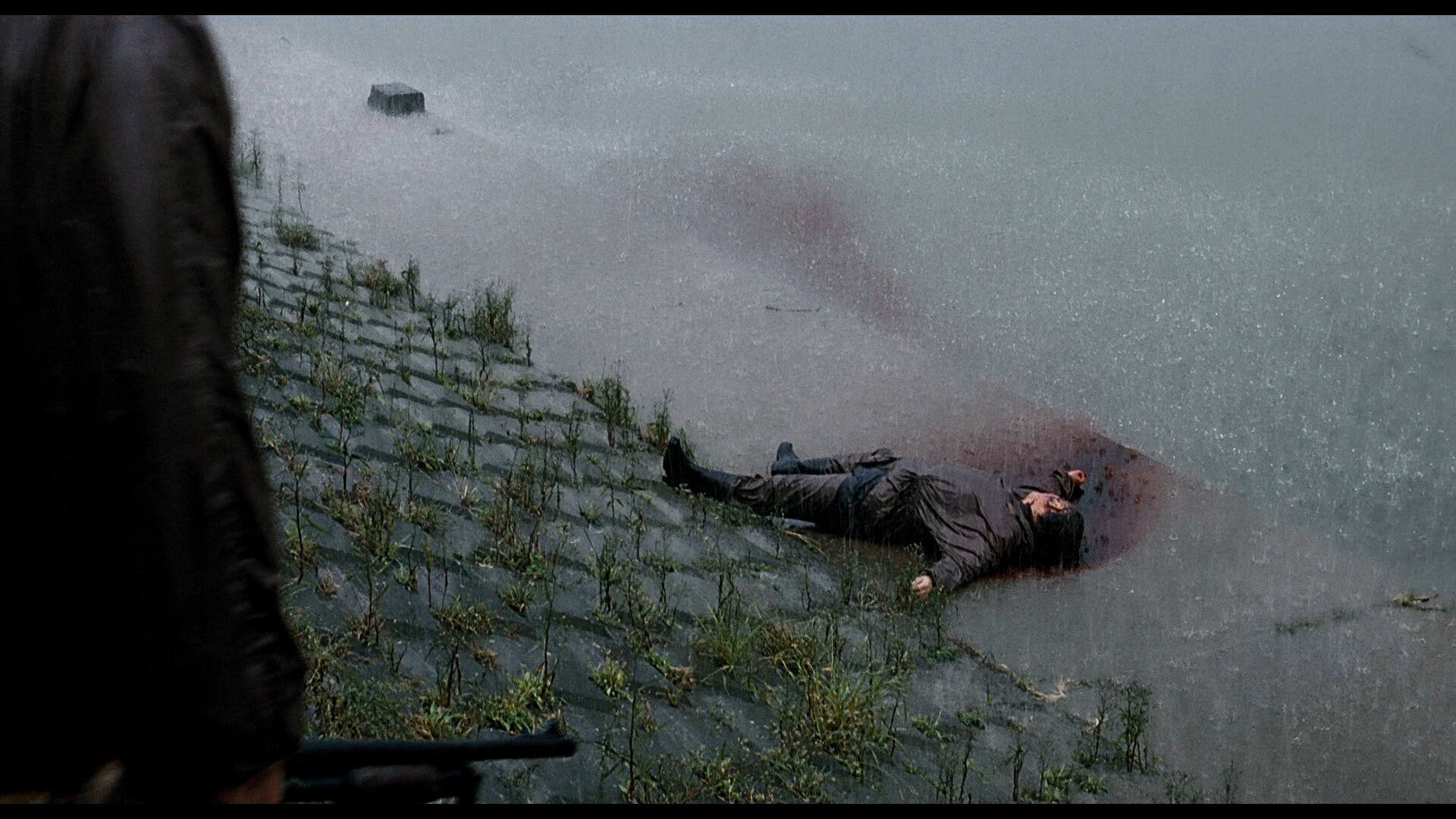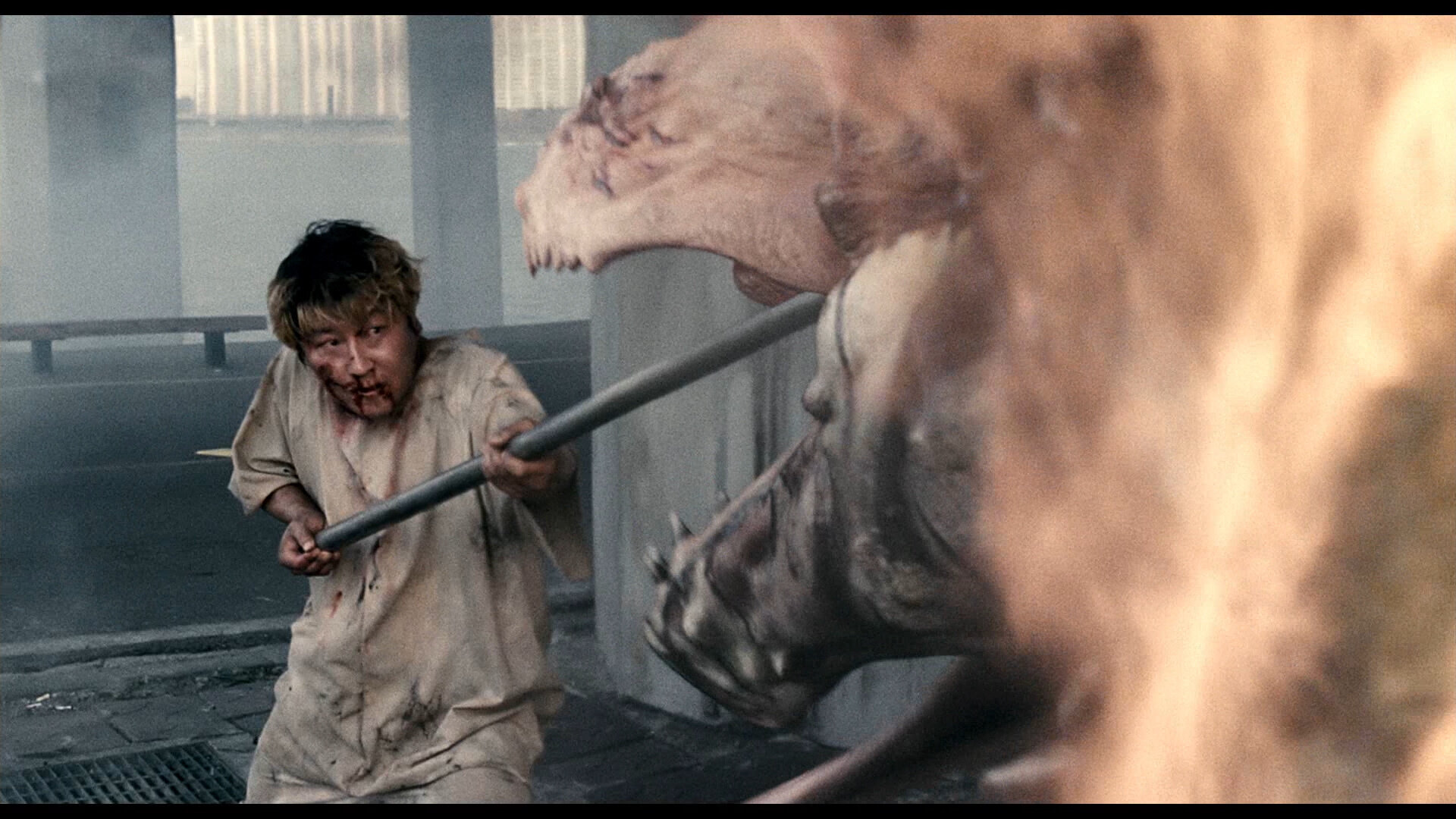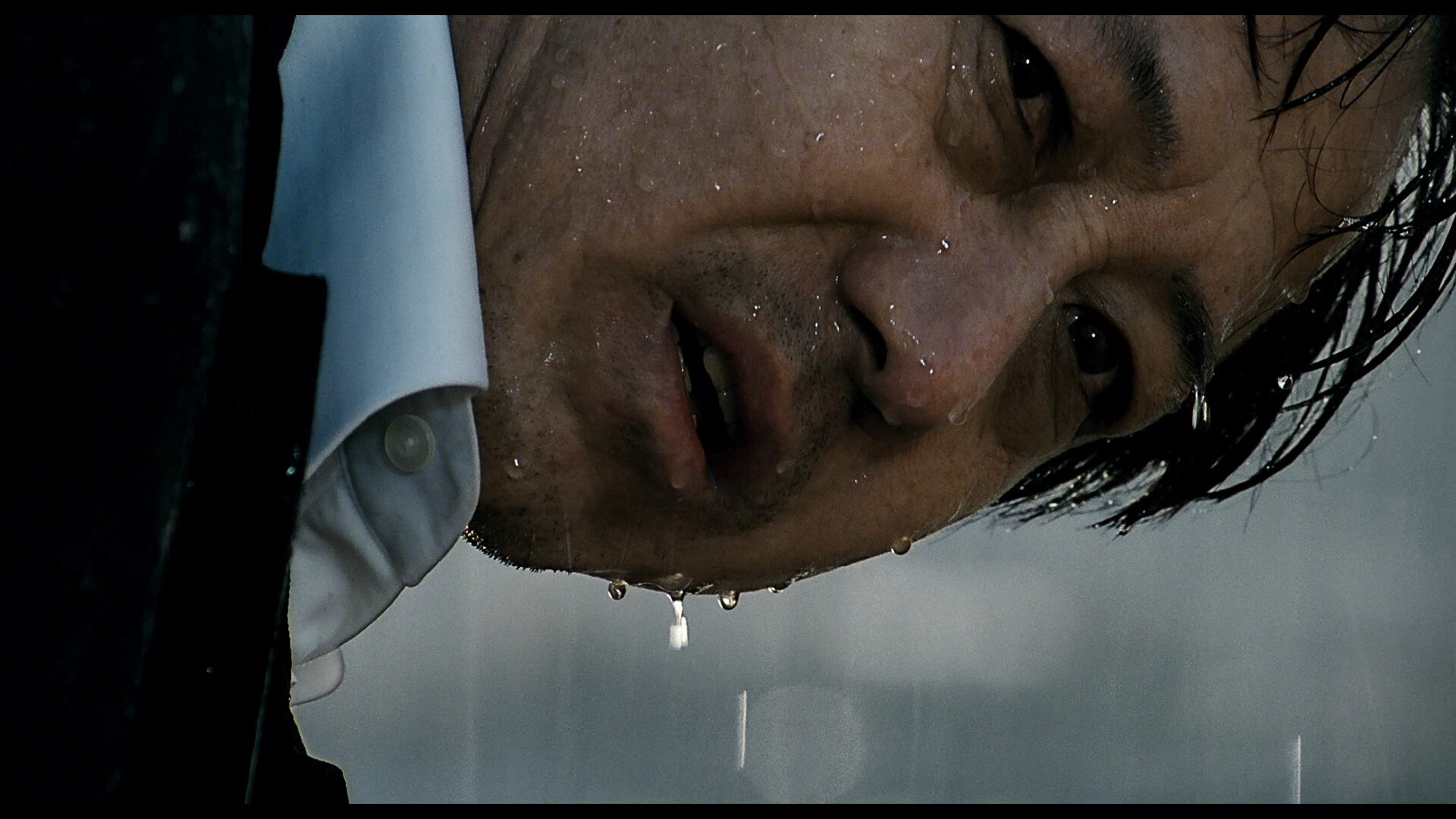Film Review: The Host (2006)
Bong Joon Ho, the filmmaker behind such indelible films as Memories of Murder (2003) and Barking Dogs Never Bite (2000), has finished the script to his sequel to 2019’s Parasite. To satiate yourself till then, you should pick up his instant classic from 2006, The Host, released on Blu-ray, which was transferred beautifully and comes packaged with a variety of special features. But before I go more in-depth about the disc itself, I'll first say a few things about the film, which I adore.
The Film
There probably isn’t much to say about this one that hasn’t already been said in terms of perfunctory compliments (the film has been lauded with critical and academic praise), but I will say that, as expressed by the American mortician in the first scene of the film (“Let’s try to be broad-minded about this"), in “broad” terms, The Host manages to deliver on several levels, giving more "bang for the buck" than most set-piece heavy genre films. It is peculiarly Korean, yet universal; it is spectacular, as well as emotionally moving; it is smart, yet not pretentious; complex, but not convoluted. In short, the film gains its vigor by delivering on three fronts: intellectually, generically, and emotionally.
The Host respects its audience and nothing appears to be sacrificed for appeal to a lowest common denominator. During its theatrical run in the United States, it was screening mostly at art houses—thus one could call it an art-house blockbuster, purely in terms of what Walter Benjamin called "exhibition value." I had seen the film at a cinematheque and liked it, but rewatching it again on Blu-ray was a revelation. I had the strong impression that its statements are so pervasively layered that it would take multiple viewings from several critical perspectives to begin to unlock the depth of its aspirations. Some might call the filmmakers elitist for this very reason, but I can think of no better canon of artistry than whether a film rewards an educated audience and with multiple viewings.
In terms of genre, it has been argued—according to Joon-ho Bong—that The Host is "Korea's first legitimate anti-American film" because the monster can be read as an analogue of the effects of American foreign policy. Or perhaps because, more definitely, the monster is created by occupying American forces: the creature is the egregious result of an American military mortician capriciously ordering his Korean subordinate to pour gallons of formaldehyde into the sewers connected to the Han River. But a finalized reading of the monster-as-United States is an oversimplification and ignores the film's finer points. The creature can be better identified as any "Other"—e.g., the invisible "system" oppressing the individual, outsiders (e.g., American occupying forces), an incompetent family member, the notion of a deadly "virus" being perpetuated by the media, the homeless stealing from the rich and giving to the poor; or more precisely, any entity which is identified to be parasitical on a host, i.e., Korean national identity. To put it another way, the film is decidedly Korean, and thus not-American, but it invites being viewed from a variety of frameworks, rather than a singular "anti-American" one. In this sense, the film is a spiritual descendent of such horror classics as Alien and Night of the Living Dead.
Moreover, while the film is rooted in the monster-movie genre from the first frame to the last, it obtains a humanity and emotional force—too often lost when character is subjugated to spectacle in genre pictures—by being constructed around the institution of the family, which, to hearken back to the film's social and political aspirations, can also be read as a microcosm for the Korean nation as a whole. Here, the Spielbergian narrative influence, from JAWS in particular, is easily recognized and most pointedly described by Steven Spielberg as "ordinary people in extraordinary circumstances."
I think this a great film and its success is due to the fact that it isn't just a "monster movie." But don't take my word for it. Check it out and decide for yourself!
THE BLU-RAY: VISUALS
As I said above, the transfer on this Blu-ray is beautiful. Great texture and even some noticeable film grain in light areas. The film has a subdued color palette, mostly cold or neutral colors, but when the bright colors (e.g., red, yellow) are present, they are extremely vibrant and I suspect that red and yellow are intended by the filmmakers to serve a symbolic or thematic purpose. The film is presented in its original aspect ratio of 1.85:1 in glorious 1080P and although the high resolution reveals the imperfections of the CGI creature in certain shots, this doesn't detract from the film at all because, in my view, the "monster" always has quotes around it.
THE BLU-RAY: AUDIO
The disc offers the original language track, in lossless 5.1 PCM, as well as DTS-HD and Dolby Digital. Also available is the English dub, which I think is adequate if you're just looking for a fun story, but it mistranslates and omits parts of the English subtitle track that I considered integral to understanding some of the film's subtext. Try to avoid the English dub if you can.
THE BLU-RAY: SPECIAL FEATURES
There is some filler on the disc as far as special features go, but if you're interested in visual and practical effects I'd recommend watching the "Designing the Creature" and "Puppet Animatronix" featurettes. Also noteworthy is the English audio commentary track which is basically a dialogue between director Bong Joon-ho and his friend Tony Rayns, whom you may know as a frequent commentary track contributor on DVD and Blu-ray releases from Criterion Collection and Masters of Cinema. All of the special features are in standard definition.
CONCLUSION
If you are a fan of the movie, this disc is a must-have, almost entirely because of the quality of the transfer and the commentary track. It’s always nice to hear what the filmmakers have to say about their work. I also recommend picking this up if you haven't seen it but liked Joon-Ho’s other films. For collectors, however, I must point out that this disc is missing a substantial amount of supplemental material found on the R1 2-disc Collector’s Edition DVD.
Blu-ray Stills (Courtesy of DVDBeaver.com)






